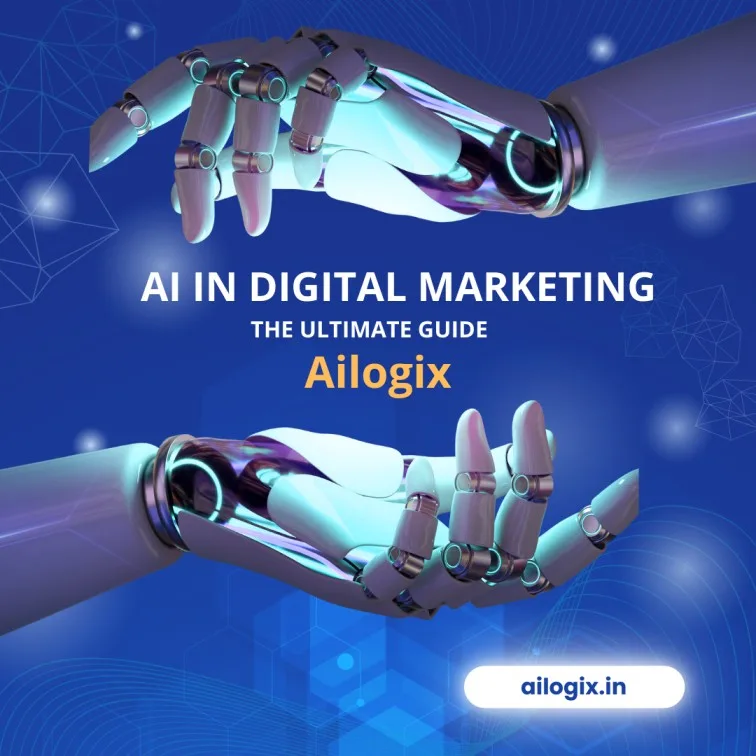
AI in Digital Marketing – The Ultimate Guide
Introduction:
In the fast-paced world of digital marketing, staying ahead of the curve is crucial for success. One of the most transformative technologies making waves in the industry is Artificial Intelligence (AI). As marketers strive to connect with their target audience in more meaningful ways, AI is becoming an invaluable tool, revolutionizing the way campaigns are planned, executed, and optimized. In this ultimate guide, we’ll explore the multifaceted role of AI in digital marketing and how it’s reshaping the landscape for businesses worldwide.
1. Defining AI:
Begin by demystifying AI for the reader. Explain that AI encompasses a range of technologies, including machine learning, natural language processing, and computer vision, all of which play vital roles in digital marketing.
2. AI Applications in Marketing:
Explore the various applications of AI in digital marketing, such as personalized content recommendations, chatbots, predictive analytics, and more. Highlight real-world examples of successful AI implementations in marketing campaigns.
3. Personalized Content:
Delve into how AI enables marketers to deliver highly personalized content by analyzing user behavior, preferences, and engagement patterns. Discuss the impact of personalized content on customer engagement and conversion rates.
4. Chatbots and Virtual Assistants:
Explore the role of AI-powered chatbots in enhancing customer experience. Discuss how these virtual assistants provide instant support, answer queries, and guide users through the sales funnel, contributing to improved customer satisfaction.
5. Data-driven Decision Making:
Emphasize the importance of data in digital marketing and how AI facilitates the analysis of vast datasets. Discuss how AI algorithms help marketers make data-driven decisions, optimize campaigns, and identify trends.
6. Predictive Analytics:
Explain how AI predicts future trends and consumer behavior based on historical data. Showcase how predictive analytics can be leveraged for forecasting, lead scoring, and proactive campaign optimization.
7. Automated Campaign Management:
Explore how AI automates routine tasks, allowing marketers to focus on strategic planning and creativity. Discuss the impact of automated campaign management on efficiency, cost-effectiveness, and scalability.
8. Email Marketing Automation:
Dive into the role of AI in automating email marketing campaigns. Discuss how AI optimizes email content, timing, and targeting, leading to higher open rates, click-through rates, and overall campaign success.
9. AI in SEO:
Examine how AI enhances search engine optimization efforts. Discuss the role of AI in keyword analysis, content optimization, and SEO strategy development for improved visibility in search engine results.
10. Content Creation and Curation:
Explore how AI tools, such as natural language processing, contribute to content creation and curation. Discuss the benefits of using AI-generated content and how it complements human creativity.
11. Data Privacy:
Address the ethical considerations surrounding AI in digital marketing, focusing on data privacy concerns. Discuss how marketers can implement responsible AI practices to build trust with their audience.
12. Bias in AI:
Examine the issue of bias in AI algorithms and its potential impact on marketing campaigns. Highlight the importance of ongoing monitoring and adjustment to mitigate bias and ensure fairness.
Conclusion:
In this ultimate guide, we’ve explored the multifaceted role of AI in digital marketing, from personalized content and data analysis to automation and SEO optimization. As AI continues to evolve, it’s clear that its integration into digital marketing strategies is no longer a luxury but a necessity for businesses aiming to thrive in the digital era. By understanding and harnessing the power of AI, marketers can unlock new levels of efficiency, effectiveness, and engagement, positioning themselves at the forefront of the ever-evolving digital landscape.

